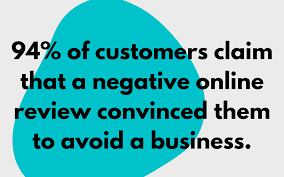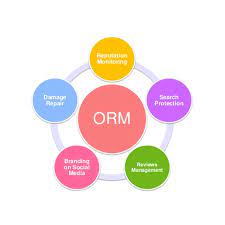With the rise of digital technology and social media, reputation management has become more important than ever. Developing an effective search reputation management (SRM) strategy is crucial for businesses and individuals who want to establish an online presence or safeguard their existing one. SRM involves understanding your current online presence, monitoring it, assessing it, and creating a strategy to take advantage of search engine optimization (SEO) tactics to maximize visibility. If you’re looking to protect your reputation online and increase positive mentions, this guide is for you!
Table of Contents
ToggleWhat is Search Reputation Management?
Search Reputation Management (SRM) is a strategy used to monitor, assess, and improve an individual’s or business’s online presence. SRM is especially important in the digital age, where information can spread quickly and easily. The process typically involves understanding the current search engine optimization (SEO) of an entity’s website or social media platforms, monitoring mentions of them online, assessing the sentiment of those mentions, and creating a plan to take advantage of SEO tactics to increase visibility in the best possible way.
Benefits of Search Reputation Management
Search Reputation Management (SRM) is a powerful tool that can help individuals and businesses protect their reputations online. SRM can help you target the right audience and make sure your organization’s message reaches them in the most effective way possible. Additionally, by monitoring and managing your online presence, you can ensure that any negative press or reviews are quickly taken care of in order to maintain a positive reputation.
Sepandar D. Kamvar; Mario T. Schlosser; Hector Garcia-Molina (2003).”The EigenTrust Algorithm for Reputation Management.
External Link: https://doi.org/10.1145%2F775152.775242
Understanding Your Online Presence
Understanding your online presence is key to managing your reputation. It’s important to recognize what people are saying about you and how that affects your image. That includes reviews, comments, articles, and more. By understanding the tone of these conversations, you can better manage your reputation and address any negative press or feedback quickly. Additionally, by tracking analytics related to your website traffic, you can gain insights into what content is performing well and what needs improvement in order to optimize it for higher search engine rankings.
Volokh, Eugene; Paul Alan Levy (10 October 2016).”Dozens of suspicious court cases, with missing defendants, aim at getting web pages taken down or deindexed”.The Washington Post
How to Monitor Your Online Presence
Monitoring your online presence is an important part of search reputation management. With the right tools and strategies in place, you can stay ahead of any potential risks associated with SEO tactics. Here are some tips to help you keep tabs on what people are saying about you:
Set up Google Alerts: Set up Google Alerts for your name and brand so that you’re notified whenever they’re mentioned online. This will allow you to quickly respond to any negative press or feedback that may arise.
Giovinco, Steven W (9 May 2015).”Image Reputation Management: What It Is, And Why You Should Care”.Medium.com. Medium. Retrieved 9 May 2015.
External Link: https://medium.com/@recovreputation/image-reputation-management-what-it-is-and-why-you-should-care-311a3e1d0462
Assessing Your Online Reputation
Assessing your online reputation is an important part of search reputation management. It involves understanding how people perceive you online, and taking steps to improve it if necessary. Here are some tips to help you assess your online presence:
Since 91 percent of people trust online reviews as much as personal recommendations, monitoring what people say about a business is crucial. This is especially true with Google reviews, which are highly visible to anyone searching for the business.
External Link: https://www.qualtrics.com/blog/online-review-stats/
Identifying Negative Content & Mentions
Identifying negative content and mentions about your brand is an important part of search reputation management. Negative comments, reviews, and articles can be damaging to your online reputation if not addressed quickly and appropriately. Here are some tips on how to identify these pieces of content:
Set Up Monitoring Tools: Utilize monitoring tools such as Google Alerts, Mention, and Social Mention to track keywords related to your brand across the web. This will help you keep tabs on what people are saying about you online so that you can address any negative comments or reviews in a timely manner.
Identifying Positive Content & Mentions
Identifying positive content and mentions about your brand is just as important as identifying negative content. Positive reviews, comments, and articles can help boost your online reputation and make it easier for potential customers to find you. Here are some tips on how to identify these pieces of content:
Set Up Monitoring Tools: Utilize monitoring tools such as Google Alerts, Mention, and Social Mention to track keywords related to your brand across the web. This will help you keep tabs on what people are saying about you online so that you can share any positive comments or reviews with others.
Khang, Hyoungkoo; Ki, Eyun-Jung; Ye, Lan (2012).”Social Media Research in Advertising, Communication, Marketing, and Public Relations, 1997–2010″.Journalism & Mass Communication Quarterly.89(2): 279–298.doi:10.1177/1077699012439853.S2CID143272082.
External Link: https://www.researchgate.net/publication/254120644
Search Engine Optimization (SEO) Strategies for Reputation Management
Search engine optimization (SEO) can be a great way to help manage and improve your online reputation. By optimizing your content for the search engines, you can ensure that potential customers are able to find positive information about your brand when they search for it. Here are some tips on how to use SEO to manage your online reputation:
Create Quality Content: Writing quality content is essential for SEO success and can help boost your online reputation as well. Focus on creating unique, informative, and relevant content that people will actually want to read.
Improving Visibility Through SEO Strategies
Improving visibility through SEO strategies is an important step in managing your online reputation. By optimizing your content for the search engines, you can ensure that potential customers are able to find positive information about your brand when they search for it. Here are some tips on how to use SEO to boost visibility:
Create Quality Content: Writing quality content is essential for SEO success and can help improve visibility. Focus on creating unique, informative, and relevant content that people will actually want to read.
Using Keywords and Phrases in Content Optimization
Using keywords and phrases in content optimization is an important part of search engine optimization (SEO). Keyword selection helps search engines understand the topic of a page, and including relevant keywords can help your content rank higher in search results. When optimizing content for keywords, it’s important to use natural language that resonates with readers.
Generating Positive Reviews & Increasing Your Digital Footprint
Increasing your digital footprint is key to improving positive search engine visibility and creating a positive reputation. One way to do this is by generating positive reviews and ratings from customers. To gain reviews, you should make sure to ask your customers for feedback and encourage them to leave reviews on public platforms like Google or Yelp.
Utilizing Social Media Platforms to Enhance SEO Efforts
Social media is an invaluable tool for improving the visibility of your website on search engines. By utilizing social media presence like Twitter, Facebook, and Instagram to share content and engage with followers, you can increase website traffic and establish a larger digital footprint. To ensure your efforts are effective, optimize your posts by including relevant keywords that are associated with your brand or industry.
Negative Review Response Strategies
Negative reviews can be damaging to the reputation of any business. As such, it is important to respond quickly and appropriately in order to minimize the damage. Begin by thanking the customer for their feedback and apologizing for any inconvenience caused. Next, offer them a resolution that will address their concerns. Be sure to be as transparent as possible during this process and provide evidence of your efforts if necessary.
Responding to Negative Reviews Quickly and Professionally
Responding to negative reviews quickly and professionally is key to preserving customer relationships and protecting your brand’s reputation. To do this, start by thanking the customer for their feedback and apologizing for any inconvenience caused. Then, provide a resolution that addresses their concerns and be as transparent as possible in doing so.
Leveraging Customer Feedback with Compliment Response Tactics
Leveraging customer feedback with compliment response tactics is an effective way to improve customer relationships and build trust with the public. Compliment response tactics involve recognizing customers when they leave positive reviews, or responding to negative reviews in a way that emphasizes the positive elements of their experience. This helps create an atmosphere of appreciation, which can make customers more likely to return and recommend your business owner.
Keeping all Responses Short, Sweet and Professional
When responding to customer feedback, it is important to keep all responses short, sweet, and professional. This helps to ensure that customers feel valued and respected while also avoiding any potential misunderstandings or miscommunications. It is also important to remain professional in all responses, even when replying to negative reviews. Doing so can help maintain a positive image of the company and show that you take customer feedback seriously.
Developing a Reputation Management Strategy Establishing Goals & Objectives
Developing a reputation management strategy is important for businesses and organizations looking to control the conversation about their brand. The first step in creating an effective strategy is establishing goals and objectives. This should include desired outcomes, such as increasing positive feedback or reducing negative bad reviews.
Taking Action: Implementing the Strategy Developing a Plan of Action Training Staff
Taking action to implement a reputation management strategy is critical to achieving desired outcomes. First, organizations should develop a plan of action that outlines which tactics will be used to achieve the goals and objectives set in the initial strategy. This plan should include specific steps for responding to customer feedback and other forms of content as well as how these responses should be communicated across all platforms used by the organization.
Evaluating Performance Tracking Metrics Monthly or Quarterly Assessing Effectiveness of Tactics Used
Evaluating the performance of a reputation management strategy is essential to ensure success. To do this, organizations should track metrics monthly or quarterly to identify any issues that may arise and determine if tactics are working as planned. This will allow them to make adjustments as needed in order to maximize results.
Conclusion
Overall, search reputation management is an important tool for businesses to maintain their online presence. By regularly tracking metrics, evaluating performance and assessing the effectiveness of tactics used, organizations can ensure that their strategy is working as intended. Additionally, having a comprehensive knowledge of the various tools available for managing search reputation will enable businesses to make more informed decisions





